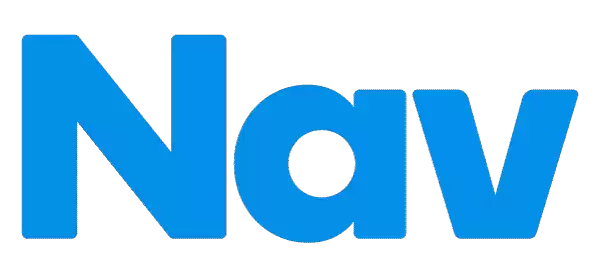Starting a business is an exciting venture filled with potential, but it often requires substantial capital to get off the ground. Whether you're looking to finance equipment, secure a storefront, or cover initial operational costs, securing the right startup loan can be crucial. This article will explore some of the best startup loans available to help you launch and grow your business.
What are Startup Loans?
If your business needs a little extra cash to cover the bills, cover inventory, payroll needs, equipment financing, or a laundry list of other business needs, a small business startup loan could definitely help. Taking out a new loan is a big deal, so here a few options for you so you can compare and find the right loan with the best terms for your business needs.
Business loans are very common due to several reasons. Business startup loans fulfill the requirements of instant money for business development. Due to this facility, these short-term loans are a popular source of finance for business. This financial aid is useful for those who are short on available funds and offer the following benefits:
- Quick transfer
- Quick processing
- An easy way of application
- No upfront fees
- Fast credit check
If you are short on cash, then startup loans could be the ultimate solution to your problem. A startup loan enables you to solve your funding issues effectively and helps to get your business moving in the right direction.
Who Qualifies for Startup Business Loans?
You have a few options available for you for your small business startup loan. There are various options available for just about any startup owner—SBA microloans, business credit cards, small business grants, friends and family, and crowdfunding.
As you might have guessed, many young and new businesses can qualify for a startup business loan.
The Best Startup Loans: Fueling Your Entrepreneurial Journey
1. SBA Loans
Pros: Lower interest rates, longer repayment terms, less stringent credit requirements due to government guarantee.
Cons: Lengthy application process, extensive documentation, and may require collateral.
Small Business Administration (SBA) loans are a popular choice for many startups due to their favorable terms and government backing. The SBA doesn't directly lend money but partners with lenders to offer loans with competitive rates and flexible repayment terms. Key SBA loan programs include:
- SBA 7(a) Loan Program: Ideal for general business purposes, including working capital, equipment purchase, and real estate acquisition.
- SBA Microloan Program: Provides smaller loan amounts (up to $50,000) to startups and small businesses.
- SBA 504 Loan Program: Targets the purchase of major fixed assets like real estate and equipment.
2. Business Credit Cards
Pros: Immediate access to funds, rewards programs (cash back, travel points), and potential to build business credit.
Cons: Higher interest rates compared to traditional loans, can lead to debt if not managed properly, lower credit limits.
For smaller, more flexible funding needs, business credit cards can be a viable option. They offer the convenience of revolving credit and can help manage cash flow for day-to-day expenses.
Businesses require a lot of things, including credit. Check out our top picks below of the best business credit cards to see how you can maximize your credit to succeed.
Unlock the Power of premium business travel with The Business Platinum Card®. Enjoy exclusive benefits like airport lounge access, hotel upgrades, and unlock over $1,400 in total value. Apply now and elevate your business travels to a whole new level.
The American Express® Business Gold Card is an excellent choice for business owners looking to maximize their points-earning from a single card, with 4x bonus categories that automatically reflect your highest spending areas each month.
3. Online Lenders
Pros: Fast approval and funding (sometimes within 24 hours), easier application process, and less emphasis on credit score.
Cons: Higher interest rates, shorter repayment terms, and varying fees.
Online lenders have gained popularity for their speed and ease of access. Companies like Kabbage, OnDeck, and Fundbox offer quick approval processes, often with less stringent credit requirements.
It's crucial to compare rates and terms from multiple lenders before making a decision:
4. Personal Loans for Business
Pros: Easier approval based on personal credit score, can be used for any business purpose, quick funding.
Cons: Higher interest rates, potential impact on personal credit, and lower borrowing limits.
If you have a strong personal credit history, you might consider a personal loan for business purposes. These loans can be easier to obtain than traditional business loans and offer flexible use of funds.
5. Angel Investors and Venture Capital
For startups with high growth potential, angel investors and venture capitalists (VCs) can provide significant funding in exchange for equity. This option not only offers capital but also valuable business mentorship and industry connections.
6. Crowdfunding
Pros: Large amounts of capital, no repayment required (investors take equity), business expertise and mentorship.
Cons: Loss of equity and control, pressure for rapid growth and return on investment, intensive pitching and due diligence process.
Crowdfunding platforms like Kickstarter, Indiegogo, and GoFundMe allow you to raise small amounts of money from a large number of people. This can be particularly effective for consumer-focused products and innovative ideas.
Pros: Access to a wide pool of potential investors, validation and marketing of your business idea, no repayment or interest.
Cons: Requires a compelling campaign, platform fees, potential for not reaching funding goal.
Choosing the Right Loan for Your Startup
When deciding on the best loan for your startup, consider the following factors:
- Loan Amount Needed: Determine how much capital you need and choose a loan that fits that requirement.
- Interest Rates and Fees: Compare the cost of different loan options to ensure you're getting a competitive rate.
- Repayment Terms: Look for loans with terms that match your business’s cash flow and revenue projections.
- Approval Requirements: Assess your creditworthiness and choose loans that align with your financial profile.
- Speed of Funding: Consider how quickly you need the funds and select lenders that can meet your timeline.
Finding the right startup loan is a critical step in your entrepreneurial journey. By understanding the different options available and carefully evaluating your business’s needs and financial situation, you can secure the funding necessary to turn your vision into reality. Whether you opt for an SBA loan, business credit card, or alternative financing, the key is to choose a loan that supports your long-term success. Happy funding!
|
4.7
|
4.0
|
|
Loan Amounts: $1,000 - $10 million
|
Loan Amounts: $5,000 - $125,000
|











